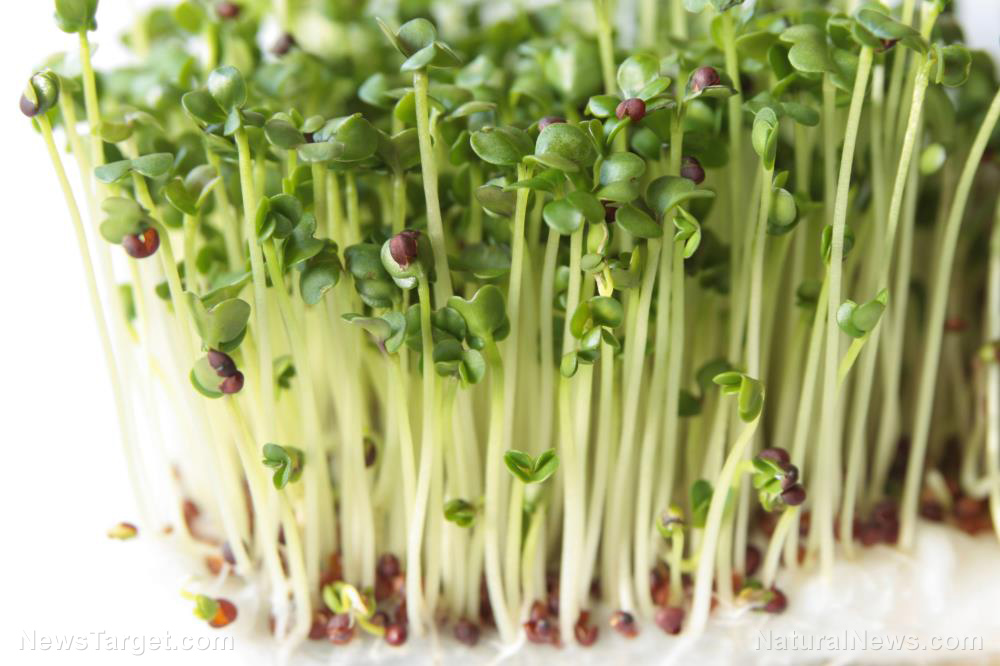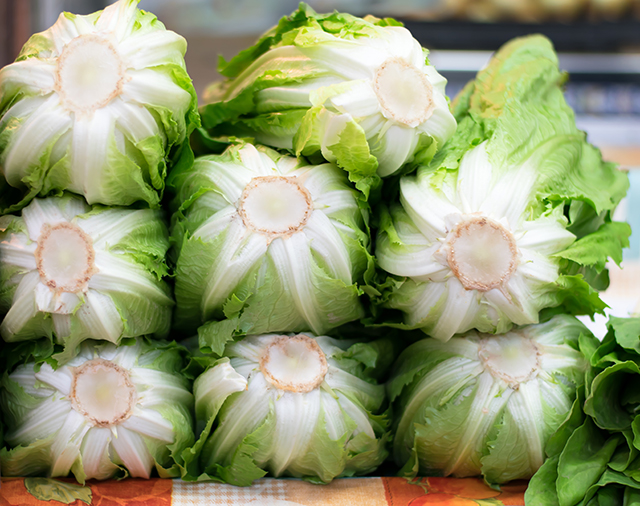Eating a plant-based diet can help protect against COVID-19, researchers find
08/01/2021 / By Divina Ramirez

People who eat a plant-based diet are less likely to contract COVID-19 and become severely ill with the disease, according to a recent study by researchers from Harvard Medical School, King’s College London and the health science company ZOE.
The researchers analyzed data from over 590,000 people from the United States and the United Kingdom who answered a survey about the foods they ate last February using the ZOE COVID Symptom Study application. The application allows users to record their symptoms in case of COVID-19 infection and to log when they’ve had a positive polymerase chain reaction (PCR) test.
By early December 2020, 19 percent of the users who participated contracted COVID-19 based on positive PCR test results and symptoms reported via the application.
“For the first time, we’ve been able to show that a healthier diet can cut the chances of developing [COVID-19],” said co-author Sarah Berry, a senior lecturer in nutritional sciences at King’s College London.
A preprint of the study was released online in medRxiv.
Eat more plant-based foods to avoid COVID-19
Poor metabolic health and certain lifestyle factors are associated with an increased risk and severity of COVID-19, but data for diets are lacking. For their study, the researchers sought to analyze the association of diet quality with the risk and severity of COVID-19 and how that intersects with socioeconomic factors.
To that end, the researchers examined data from 592,571 users of the ZOE COVID Symptom Study application from the U.S. and the U.K. The users completed a survey about the foods they ate in February 2020. The researchers scored users’ diet quality based on a scale that emphasized healthy, plant-based foods.
The users were followed until December 2020 and asked to log if they had contracted COVID-19 or were hospitalized because of it.
Diets with high quality scores were found to contain more plant-based foods, especially fruits, vegetables, nuts and whole grains. On average, people with high-scoring diets ate two pieces of fruit and three different vegetables per day. They also ate 200 grams (g) of fatty fish every week and limited their intake of refined grains and processed foods.
People who eat plant-based foods have healthy microbes in their guts, said Tim Spector, a co-author of the study and a co-founder of ZOE. Having healthy gut microbes has been linked to better health.
On the other hand, low-scoring diets were found to contain more processed foods. On average, users with low-scoring diets ate fewer than two pieces of fruit per week and went some days without eating any vegetable or oily fish.
In addition, the researchers found that there were 72 cases of COVID-19 for every 10,000 person-months among users with high-scoring diets. Meanwhile, there were 95 cases of COVID-19 for every 10,000 person-months among users with low-scoring diets.
Overall, the researchers found that users with high-scoring diets were 10 percent less likely to contract COVID-19 and 40 percent less likely to become severely ill with the disease than users with low-scoring diets. They estimated that nearly a quarter of users who became infected with COVID-19 could have avoided the disease if they ate a healthier diet.
They also noted that users living in areas where plant-based foods were less available may face a greater risk of COVID-19 infection than users with easier access to those foods.
How to get started on a plant-based diet
There is no need to go vegan to reap the health benefits of eating plant-based foods. Many healthy plant-based diets, such as the Mediterranean diet, still allow meats and animal products to a certain degree. However, you’re encouraged to limit your intake of those foods as much as possible.
If you want to get started on a plant-based diet, keep the following tips in mind:
- Eat more vegetables. Fill half of your plate with vegetables at lunch and dinner. (Related: 14 must-consume vegetables to stay healthy and fight disease.)
- Limit meat and dairy intake. Though you can still eat meat and dairy, they shouldn’t be the center of your diet. Use them for making side dishes instead of adding them to your mains.
- Choose healthy fats. The fats found in olive oil, fatty fishes and nuts support your health in many ways.
- Switch to whole grains. Replace refined grains with whole grains. For example, eat whole-wheat bread instead of white bread and brown rice instead of white rice.
- Eat fruit for dessert. Eating a piece of fruit for dessert is an easy way to add more fruits to your meals.
Fresh.news has more articles on the health benefits of eating plant-based foods.
Sources include:
Submit a correction >>
Tagged Under:
coronavirus, covid-19, covid-19 pandemic, disease prevention, Fresh, fruits, functional food, healthy diet, healthy diets, nutrients, nutrition, organics, outbreak, pandemic, plant-based diet, plant-based foods, prevention, vegetables, Veggies, Whole Foods
This article may contain statements that reflect the opinion of the author
RECENT NEWS & ARTICLES
COPYRIGHT © 2017 FRESH NEWS





















